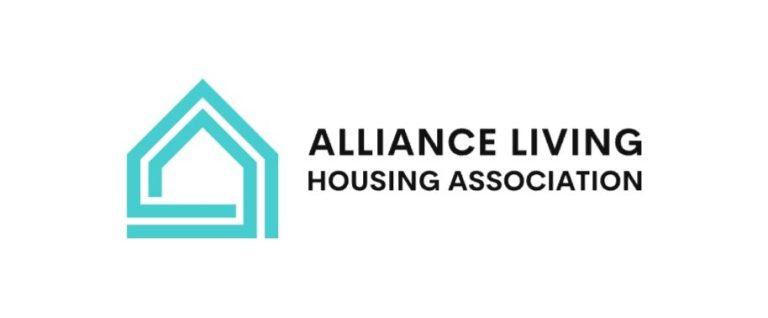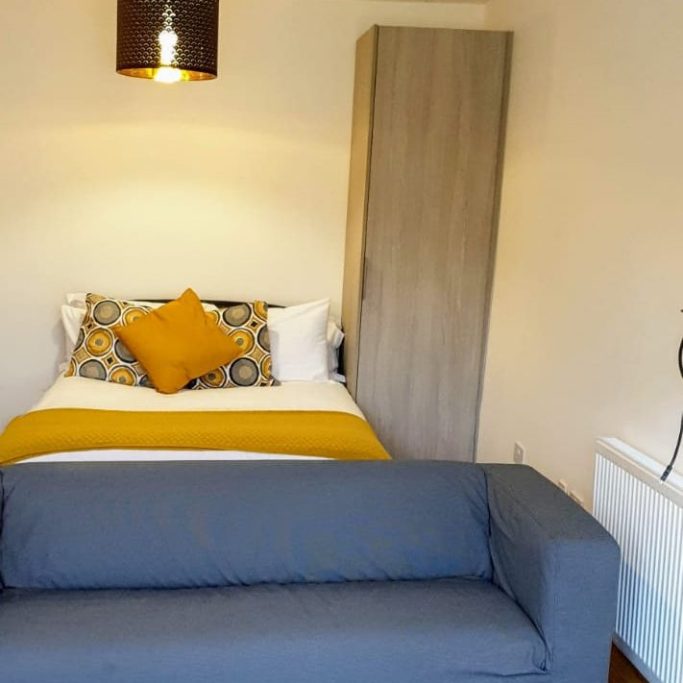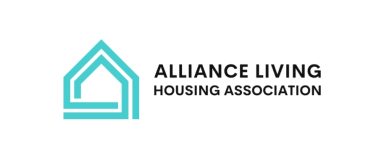
Our Mission
Our mission is to equip each resident with the tools they require to become a constructive member of the community. It is the fundamental belief of all at Alliance Living that recovery (sic) is possible regardless of personal circumstances, race, religion or cultural background.

Who We Are
We are a not-for profit organisation dedicated to improving the lives of those at a disadvantage through homelessness, mental health issues and addiction.
All it takes to become homeless are a few poor decisions, some bad luck or an unexpected change in circumstances. Insecure housing, substance addiction, debt and mental health problems are not easy to overcome, but Alliance Living is designed to help people face these issues and will work with the inidividual to create sustainable solutions. We do this through a holistic approach of support, housing provision and signposting; we work alongside statutory and non-statutory organisations.
The most damaging impact of homelessness is the loss of self esteem. Being on their own, with no support around them can be disempowering, leaving them feeling worthless. Alliance Living provides a person centred and solutions based approach that is driven by the needs of the individual and support is tailored to each person based on requirements and circumstance.
Homelessness provision is primarily based on temporary fixes; a bed for the night and food handouts. Alliance Living is different; our support is tailored, wraparound and with no cliff edge, the support we offer continues for as long as each individual needs.
Alliance gives people the opportunity to take stock of their lives, deal with any issues they might have, and often re-establish relationships with loved ones and the community. We will support anybody with appropriate need regardless of background.
How you can help

Donations
Our clients are usually on low incomes and donations of food, toiletries and good quality clothing are always greatly appreciated. Also donations of supermarket and High Street vouchers as well as money towards our work are welcome.

Volunteer
Budding builder? Awesome adminstrator? Creative campaigner? Whether it's working on property maintenance, mentoring our clients, cleaning, painting or many other tasks; we are always on the look out for fabulous folk with a heart for change.

Refer
Do you know somebody who is homeless or at risk of homelessness in Birmingham, Solihull or Reading? Ask them to reach out to us and we will assist them in their journey to housing security.

Did you know?
Over recent years, there’s been an undeniable increase in the number of people facing homelessness. Whilst the impact of homelessness can be devastating, it can often be hard for people to truly understand the difficulties of being in this situation. For this reason, we’ve put together 10 facts about homelessness to help increase awareness around the challenges of life without a home.
How many people are affected by homelessness in England?
In England, more than 274,000 people are currently experiencing homelessness. This means that one in every 206 people in the country are living without a stable home. Of course, it’s important to remember that these figures could be even higher, as many people are missed from homelessness records by being out of view.
Recent statistics from Shelter also reveal that London has the highest rates of homelessness, with one in 53 people currently without a home in the capital. Outside of London, Luton in Bedfordshire has the second-highest rate.
The number of people living on the streets has also risen steadily within the last year. Sadly, more than 11,000 people were sleeping rough between April 2021 and March 2022 alone — a 3% increase on the previous year. In addition, new figures for December 2022 suggest that there are currently around 2,700 people sleeping rough on any given night in England.
Are there more men or women facing homelessness?
In Autumn 2022, official rough sleeping statistics indicated that of the 2,688 people sleeping rough, only 14% were women. Furthermore, only 12% of the homeless deaths registered in 2022 were among women, according to ONS statistics.
However, women are more likely to seek hidden places to sleep, due to a fear of abuse or harassment, and for this reason, many are missed from official statistics and are often not spotted by volunteers or charities.
What is the average age of those experiencing homelessness?
Statistics show that the majority of people facing homelessness are 25-65 years old. Despite this, homelessness can affect anyone, no matter what their age.
A report by Shelter suggests that 183 children sadly lose their homes every single day, with an alarmingly high number of 126,000 children estimated to be currently homeless. Undergoing the stress and trauma of homelessness at such a young age can be extremely difficult. Moreover, these children are far more likely to experience mental health issues in the future.
What are the top causes of homelessness?
From economic factors, through to unexpected life changes, there are many reasons for homelessness. But over recent years, eviction from a privately rented home has been the top cause. Short contracts, the selling of properties or increased rents can all result in sudden or unfair evictions.
Unexpected life events can also leave people without a stable home. Whether it's the end of a relationship, domestic abuse, a family death, losing a job or dealing with substance abuse, the stability of a home can all too quickly be lost. No two situations are ever the same, which is why every person dealing with homelessness should receive support tailored to their specific needs.
How many homeless people die each year in England?
In 2022, there were an estimated 688 homeless deaths in England and Wales. Even more worryingly, the average life expectancy among those experiencing homelessness was 45.9 years for a male and 41.6 years for a female. These shocking statistics, provided by ONS, indicate just how dangerous sleeping rough can be. From mental health, through to physical health, homelessness takes its toll.
What are the most common health issues faced by those experiencing homelessness?
Homelessness can make it incredibly difficult to stay physically healthy. Cold conditions, little food, poor hygiene and disrupted sleep can lead to a rapid decline in health. Often, physical illnesses will go untreated, due to inaccessible healthcare. It’s for this reason that at least one-third of homeless people die from conditions that could have been easily treated.
In addition, homelessness has huge impacts on a person’s mental health. Constant stress, loneliness and trauma can lead to problems such as anxiety, depression, PTSD and schizophrenia. In 2022, there were 74 suicide deaths registered amongst homeless people in England — a figure that demonstrates the desperate need for an increase in mental health support.
How has Covid-19 impacted homelessness?
As the Covid-19 pandemic swept across the country, a new wave of people found themselves at risk of losing their home. As businesses closed, jobs were lost and rents increased, more and more people were forced out onto the streets. Plus, many of those who were sofa-surfing or living in squats were unable to remain in their accommodations.
However, there were some positives amidst the darkness. The “Everyone In” scheme, provided across all three nations, aimed to find emergency accommodation for anyone who was homeless or at risk of homelessness. During this short period of time, the government estimated that 37,000 people were helped.
What are the different types of homelessness?
When discussing homelessness, many people only consider those who are sleeping rough on the streets. However, there are, in fact, several different types of homelessness. These include:
Rough sleeping — this is the most dangerous type of homelessness, with those sleeping rough 17 times more likely to experience violence compared to the general population. Rough sleeping could mean sleeping on pavements, benches, bus shelters or even in waste bins — anything that can be found out on the streets.
In temporary accommodation — temporary or emergency accommodation includes shelters, hostels, private housing, social housing and B&Bs. Each type of accommodation provides varying facilities and will offer either short-term or long-term stays.
Hidden homelessness — this term is used to describe those who are living in squats, sleeping at a friend's house or living in places such as cars or sheds. The most recent figures from Crisis estimate that there are around 71,400 sofa-surfers across the UK.
What services do homeless charities offer?
There are a large number of charities around the country, working to prevent homelessness and to help those affected by it. However, there is a shortage of organisations that provide a holistic and tailored service with no arbitary end.
What are the best ways to help those experiencing homelessness?
The good news is that there are plenty of ways you can help. Perhaps you’d like to make a small donation, start a fundraising event or even volunteer – there are so many different ways to get involved:
Get in touch with professionals if you notice someone sleeping rough.
Engage in a friendly conversation with those facing homelessness.
Give a hot/cool drink and a snack to those sleeping on the streets.
Donate food.
Volunteer with a homeless charity.
Take part in a fundraising event.
Donate money to support a local homeless charity.
Donate clothes or toiletries to homelessness services, such as Alliance.
Help us continue our work
Whether it is your skills, time or money, we rely on our supporters to do what we do. Get in touch to find out how you can help.
Contact us
Telephone: 07392803951.
E-mail: info@allianceliving.org
Address: Parkgate House, 195 Stratford Rd, Shirley, Solihull B90 3AU
